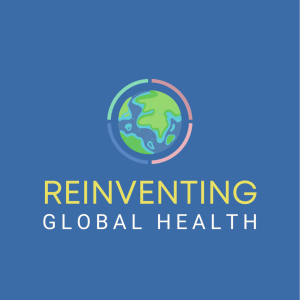
Thursday Feb 09, 2023
Healthcare Systems and Global Health: The U.S. Example - with Michael J. Zema, MD
The US Healthcare system has slowly evolved over the past century through a combination of legislative efforts, need assessment by the private sector and pioneering efforts by a few dedicated and resourceful patient care givers. As such, morphing over the decades and at times having been shackled by political compromise, it is not surprising that with its evolution there would be some unintended consequences. At this stage, to help create a future healthcare delivery system which can facilitate the timely, efficient and appropriate access to healthcare for those most in need at a cost that is sustainable, one must proceed carefully lest we continue to apply layer upon layer of more ineffectual “band-aids” as has been previously done. Healthcare is complicated and so therefore is its delivery. As HL Mencken once warned, “For every complex problem there is a solution which is simple direct and wrong.” In this digital world in which we now live, do not surrender to the vicarious technological varlets: fax, voice mail, email, text, electronic health records and artificial intelligence, the very effective and personable interactions with your colleagues and your patients, including a carefully performed physical examination. The latter represents an important transactional moment between doctor and patient, “a laying on of healing hands” which helps foster the trust needed for relational continuity and effective cure. To those who would have you believe that technology will totally replace this interaction, I would have them remember the old girl scouting adage…. “Make new friends but keep the old, the one is silver, the other gold”… Further, please never forget, “No one cares how much you know until they know how much you care.” Remember, even an intellectual argument, including detailed statistical analyses can at first appear quite cogent, but upon more careful examination may be found to be fraught with erroneous assumptions and even faulty methodology. Be critical in your review of the literature. As Benjamin Desraeli, 19th century Prime Minister of England twice over quite perspicaciously once stated, “There are three kinds of lies; lies, damned lies and statistics.” When reviewing the literature, remember to fix your sights on the proper target. Albert Einstein once stated, “Not everything that can be counted counts and not everything worth counting can be counted,” words of wisdom when applied to healthcare.
- OECD (Organization of Economic Cooperation & Development) https://www.oecd.org/health/health-statistics.htm World Index of Healthcare Innovation www.freopp.org/wihi/home
- Kaiser Family Foundation Schaeffer Center for Health Policy
- Brookings Institute Center for Medicare & Medicaid Services Commonwealth Fund https://www.commonwealthfund.org/international-health-policy-center/system-stats
- IMS Institute for Healthcare Information Global Medication Use in 2020 US Census Bureau https://www.census.gov/quickfacts/fact/table/US/PST045221
- American Hospital Association https://www.aha.org/statistics/fast-facts-us-hospitals
- US Dept Health & Human Services Office of the Inspector General https://oig.hhs.gov/oei/reports/OEI-09-18-00260.pdf / https://oig.hhs.gov/oei/reports/OEI-06-18-00400.pdf
- Association of America Medical Colleges https://www.aamc.org/data-reports/reporting-tools/report/tuition-and-studentfees-reports
- 3M Clinical and Economic Research https://multimedia.3m.com/mws/media/2117913O/his-pm-cer-socioeconomicstatus-health-care-deliverysystem-performance-report-en-us.pdf
- American Association of Nurse Practitioners (AANP) https://www.aanp.org
BIO
Dr. Zema has enjoyed a tenure of forty plus years in the healthcare arena on the “inside” as physician trainee; private practitioner; member of a hospital medical board; vice president of a physician independent practice association; board member of a physician holding company; pharmaceutical industry and malpractice legal consultant; chief of cardiology at both community hospital and academic medical centers; professor of medicine at two state university colleges of medicine; and physician clinical reviewer for a large national radiology benefits manager. Having operated in all of the above "silos," at one time or another, unlike so many of today's so-called "pundits,"
Dr. Zema has indeed walked the walk and not merely talked the talk and as such is uniquely qualified to debate healthcare delivery providing a glimpse from the inside out.
https://www.linkedin.com/in/michaeljzema-md/
Comments (0)
To leave or reply to comments, please download free Podbean or
No Comments
To leave or reply to comments,
please download free Podbean App.